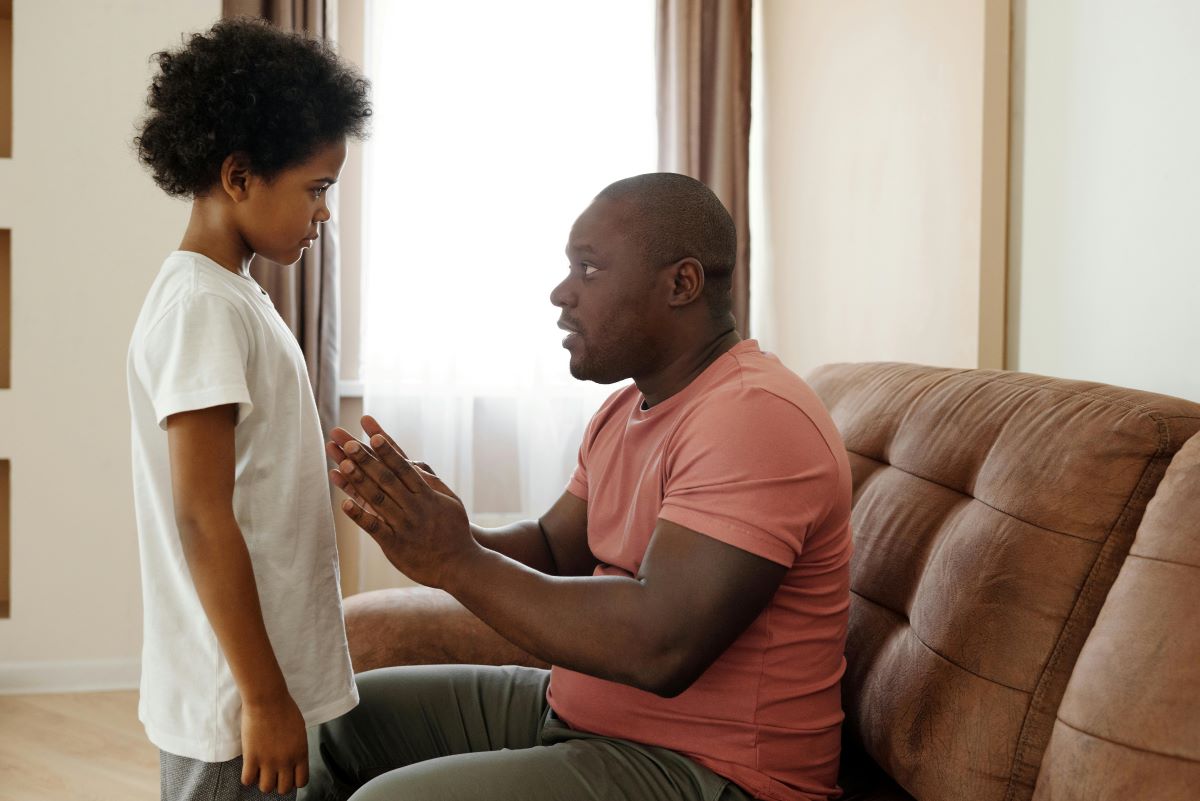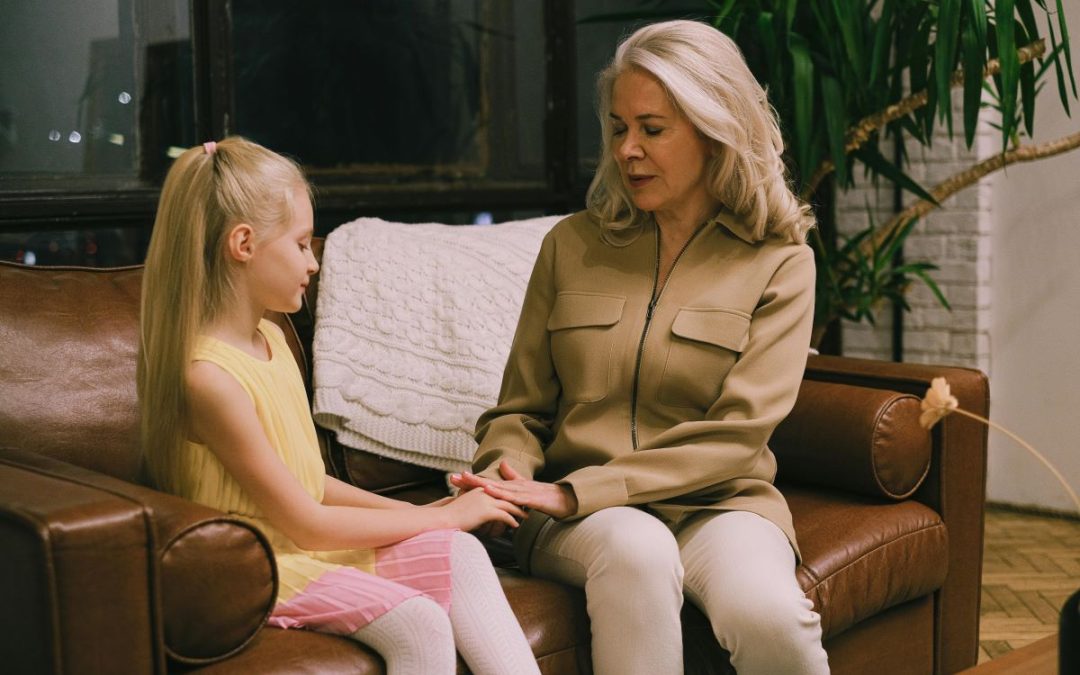Dementia doesn’t just affect the person diagnosed, it affects the whole family, including children. Having conversations about dementia with children can be tough, but it’s necessary for building empathy and understanding. Children may not fully understand what’s happening and struggle with confusion, anxiety, and fear.
Communicating with children about a loved one’s dementia is crucial for promoting compassion and building resilience. Read on to learn more about talking to children about dementia and how to maintain a connection between your children and their loved one.

How Children May Be Affected by Dementia
Children could experience a wide range of emotions tied to the changes that come with dementia. Resembling what adults experience, children may have feelings of fear, agitation, and sadness because of the new behaviors. Some of the other common emotions include the following:
Shame: They may believe that they are to blame for the dementia because of an action they have done.
Confusion: Since there’s a shift in roles, children may be confused about having to take care of someone who used to take care of them.
Anger: Since family members often have to devote more time to their loved one, children may feel that there’s not enough time to go around for them.
Why Dementia Should Be Explained to Children
Children may have feelings of depression or anxiety if they don’t understand what’s going on with their loved ones. When children are aware of the issue, it can actually be more comforting for them. Without speaking the truth, they may eventually develop trust issues. In fact, children may end up even more disgruntled if they find out the diagnosis later on instead of facing it head-on now.
When to Talk to Children About Dementia
The timing of talking to children about dementia depends on what stage your loved one is in. If the loved one with dementia is still in the early stages, you can ask the children if they want to be included. This can help comfort the children and provide much-needed information. However, if the dementia sufferer has a sudden behavior change, then a conversation should be had as soon as possible.
How to Explain Dementia
Talking to children about dementia is best explained according to the child’s age group.
Ages 4 to 9
Children in this age group may have a lot of questions. They may even ask why their grandparent calls them by the wrong name. If they do ask a similar question, you can explain that their grandparent has an illness that makes it hard for them to remember. You can also supplement your explanation by using child-friendly resources such as videos that help explain dementia.
Ages 10 to 13
When it comes to talking to children about dementia, this age is typically more sympathetic than younger children. With this age group, you’ll want to explain the loved one’s behavior in a way that’s appropriate for this degree of maturity. You can also communicate more details with this group such as the part of the brain that’s impacted or the types of dementia such as Alzheimer’s.
Ages 14 to 18
The adolescent years are already challenging in themselves, and dementia adds even more challenges. Teens in this age group may feel that you don’t spend enough time with them due to caregiving duties and may feel embarrassed about bringing friends over. With their complex feelings, reassure them that as dementia advances in each stage, they are normal reactions.
Maintaining a Connection Between Your Child and Loved One
Motivate your child to spend time with your loved one. Develop a way to share in activities they both enjoy. Some helpful activities include dancing, music, and writing, which pave the way for them to express themselves through art. Furthermore, children and individuals who have dementia are often drawn to sensory gear such as fidget blankets and pillows.
Takeaway
When a loved one has dementia, it can impact the entire family. By communicating and sharing feelings, you can help your children and loved one to cope during this life stage. If you have a loved one who was diagnosed with dementia, reach out to Sandyside Senior Living today. Our facility mimics the comforts of home with a variety of amenities including delicious meals, social events, and hairdressing services.
Speak with a friendly senior living specialist at (248) 698-3700 or schedule a tour by filling out our online contact form.

